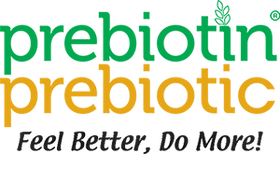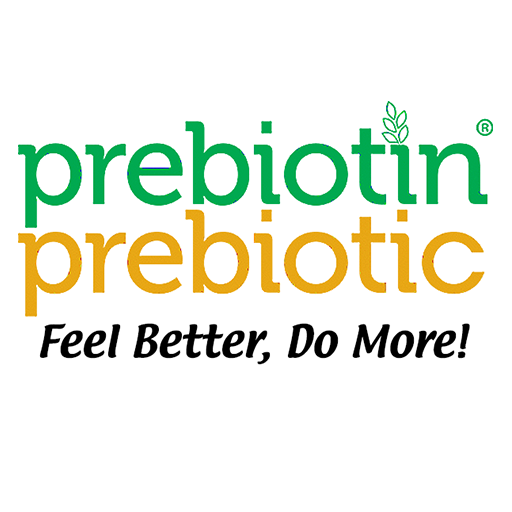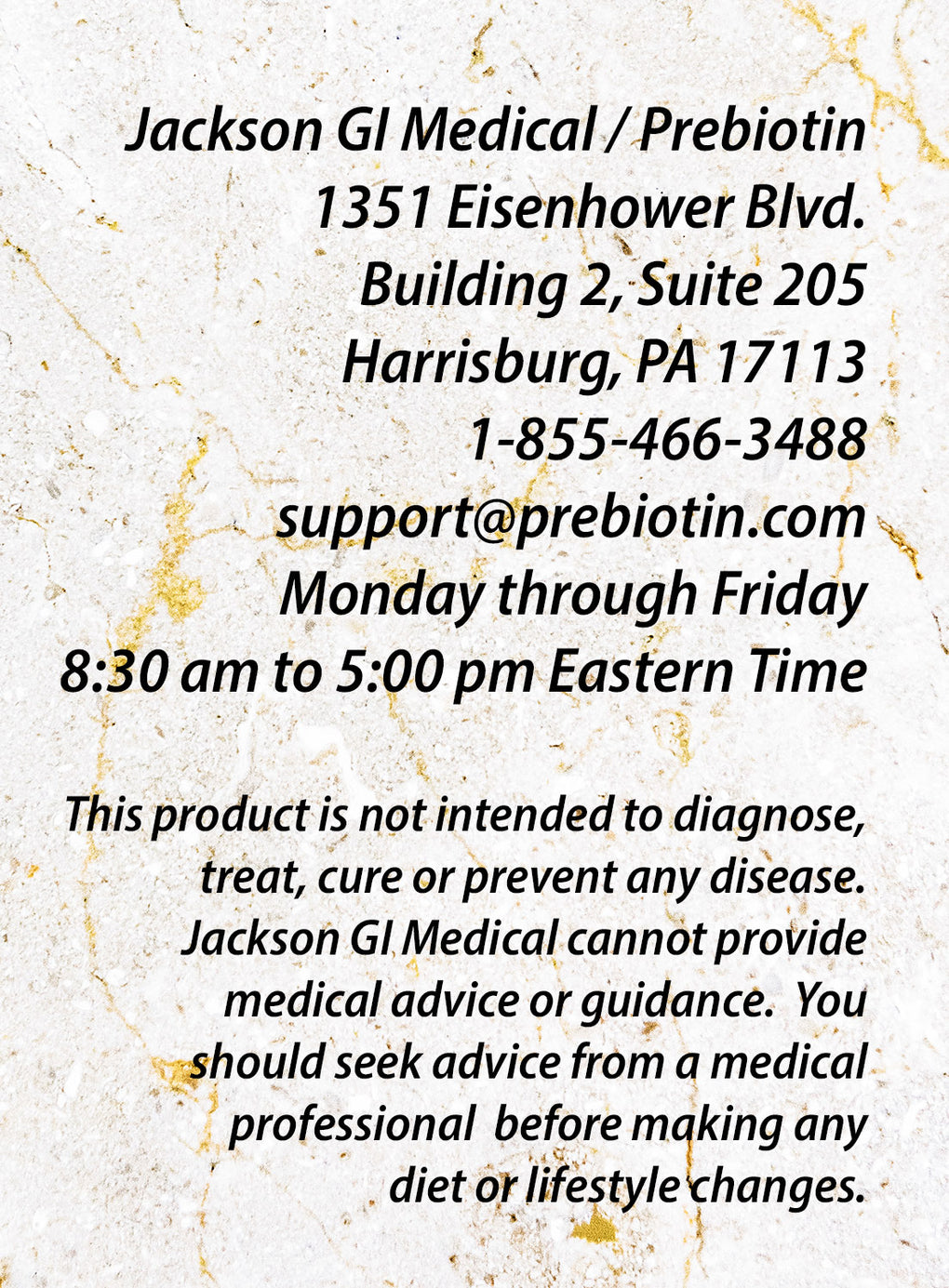Could the Cause and Cure for Diabetes Begin in Your Gut?
Prebiotin® Prebiotic Fiber Participates in Annual Diabetes Educators Conference

With every study, research is more definite that if you have diabetes, you also have an unhealthy mix of bacteria in your gut. In a year when the “microbiome” is finally becoming a household word, the nearly 5,000 diabetes educators who will attend this year’s annual American Association of Diabetes Educators (AADE) conference, AADE18, in Baltimore (August 17-20), may find gut bacteria is at the heart of new therapeutic approaches for diabetes, especially if they visit the Prebiotin booth.
Prebiotin’s Medical Director, F. Wilson Jackson, MD, explains, “Ongoing research is beginning to unravel the role of the microbiome in the development and subsequent clinical course of type 2 diabetes. As we understand this interplay, we are able to harness the power of the microbiome to further treat type 2 diabetes. The potential to modulate the gut microbiome offers a new therapeutic approach. These are exciting and promising times for patients with the disease.”

A New Approach to Treatment: Researchers Focus on Prebiotic Fiber
As America and other Western countries face an epidemic increase in obesity, diabetes rates are skyrocketing, with more than 100 million Americans living with diabetes or prediabetes. New therapeutic approaches for diabetes that are easy for the patient, have no side effects, are cost-effective, and have a documented impact on reducing obesity and related disease risk may be one of the major takeaways from this year’s diabetes educators conference.
“The potential to modulate the gut microbiome offers a new therapeutic approach. These are exciting and promising times for patients with the disease.”
– F. Wilson Jackson, MD, Prebiotin Medical Director and gastroenterologist
Says Greg Cooper, Prebiotin’s Director of Product and Business Development, “We hope those attending the AADE conference recognize our product has a legitimate, researched impact on microbial imbalance in the body leading to inflammation—and diabetes.”
Extensively Researched Prebiotic Fiber
Prebiotin is participating in 6 current studies that focus on the therapeutic use of oligofructose-enriched inulin (the ingredient in Prebiotin) to improve a wide range of health conditions, from inflammatory bowel disease to end stage renal disease (ESRD). Diabetes is one of the main risk factors for ESRD.
In a major $6.5 million NIH/NIDDK initiative to find therapeutic means to reduce inflammation and prolong survival of patients with ESRD, researchers chose Prebiotin Prebiotic Fiber to study the effect of the supplement on the gut microbiome profile. Due to early positive results, researchers are discussing a larger study to further explore the role of prebiotic fiber in reducing inflammation. For more information about the study, check out the Prebiotin blog, "Reducing Obesity-Induced Inflammation:Men's Health Month Edition."
Numerous studies with oligofructose-enriched inulin (OEI), the full-spectrum ingredient in Prebiotin, demonstrate that regular supplementation changes the mix of bacteria in the gut microbiome. As a result, researchers are finding reduced inflammation and "leaky gut" conditions, with a corresponding decrease in disease risk, obesity, and illnesses like diabetes.
For more information about obesity and inflammation, check out the Prebiotin blog "Successful Use of Prebiotin Prebiotic Fiber in NIH/NIDDK Study to Reduce Inflammation in Kidney Patients."
In a 2017 systematic review and meta-analysis of 20 randomized controlled trials with 607 total participants, the authors concluded, “Overall, ITF [inulin type fructans] supplementation may provide a novel direction for improving the lipid profile and glucose metabolism.”
Two studies that examined inflammatory markers and metabolic endotoxemia (gut permeability that leads to toxic elements entering the blood stream) in women with type 2 diabetes also demonstrated the positive impact of taking oligofructose-enriched inulin.
In both studies (one published in the International Journal of Food Sciences, the other in Nutrition), the researchers concluded that inulin supplementation seems to be able to reduce inflammation and metabolic endotoxemia in women with type 2 diabetes.
How much prebiotic fiber is necessary to improve metabolic syndrome?
In another 2017 study, researchers conducted a review of recent literature to determine the types and doses of prebiotics that work best to manage metabolic syndrome (MetS). Metabolic syndrome includes a group of conditions—increased blood pressure, high blood sugar, excess body fat around the waist, and abnormal cholesterol or triglyceride levels—that together increase risk of heart disease, stroke, and diabetes.
The authors state, “The connection between MetS components and gut microflora is now acknowledged and multiple therapeutic strategies have been proposed to change the composition of the gut microbiota in order to promote optimal metabolic health.”
The study was based on an understanding that prebiotics have the ability to nurture beneficial bacteria, especially short-chain fatty-acids (SCFA) producers in the gut. As SCFA are increased, people feel satisfied more quickly, eat less, and lose weight. Increased SCFA in the gut is associated with improved gut barrier function, reduced systemic inflammation, and improved glucose and lipid metabolism.
From the review, researchers determined that a daily supplementation of 10g of inulin, resistant starches, or fructo-oligosaccharide-enriched inulin could have beneficial effects on MetS components in individuals with type 2 diabetes.
The Gut Microbiome and Obesity
Numerous studies have demonstrated that obese and lean individuals have clear differences in their gut microbial communities; specifically, obese individuals have more Firmicutes and nearly 90% less Bacteroidetes than the lean individuals.
In a review article, “The Gut Microbiome and Its Role in Obesity,” published in Nutrition Today, the author explains, “Obesity and obesity-related metabolic disorders are characterized by specific alterations in the composition and function of the human gut microbiome the bacteria.” In other words, our microbiome can play a major role in whether or not we become obese.
Other researchers have demonstrated that this mix of bacteria in the gut can be manipulated with prebiotic supplements. In one 18-week study with 44 subjects with prediabetes, half were randomized to receive inulin (the prebiotic) or cellulose supplementation. The researchers found that the inulin group lost significantly more weight, had less hepatic fat content, and better lipid profiles.
A Promising New Approach to Childhood Obesity
Another study from the University of Calgary is especially encouraging since it promises a new approach to reducing obesity in children who are already obese or overweight. The 42 children in the study (age 7 to 12) received either prebiotic fiber (oligofructose-enriched inulin) or a placebo, once daily for 16 weeks. Children who received the prebiotic fiber gained weight at a healthy rate (projected for a year), while the children who received the placebo had almost triple the expected weight gain.
In addition, the researchers found that the prebiotic fiber had also changed the types of bacteria in the microbiome to a healthier mix.
Excess weight in childhood often continues into adulthood and is an early risk factor for illnesses associated with obesity, including diabetes. This study shows that an oligofructose-enriched inulin prebiotic fiber like Prebiotin can be a non-invasive and plausible dietary treatment for the growing numbers of overweight and obese children.

The AADE18 Conference: A perfect fit for Prebiotin
These research results will be featured at the Prebiotin booth during the annual diabetes educators conference. “The AADE18 conference is a perfect fit for us,” says Prebiotin CEO Ron E. Walborn, Jr. “Nearly 5,000 diabetes educators will have the opportunity to learn the research behind Prebiotin, an all-natural prebiotic option that improves health and well-being, including reducing risk and symptoms of diabetes, while promoting healthy weight loss.”
What sets Prebiotin apart from other prebiotics on the market?
While several kinds of prebiotic supplements have been developed (some are derived from plant sources via chemical processes), leading research authorities have only been able to verify a few prebiotics that:
- Are not digested by the small intestine (and therefore add no calories to the diet)
- Are useful as fuel—or are fermented—by beneficial colon bacteria
- Produce health benefits by objective measurements
Research has determined that the best of these are inulin and oligofructose (not a sugar), a subset of inulin. Prebiotin® Prebiotic Fiber includes oligofructose-enriched inulin (OEI) naturally derived from the chicory root, an especially rich source of prebiotic fiber. The extraction process uses hot water—chemicals are never used.
Other benefits of Prebiotin include:
Highest quality ingredients. Prebiotin is fat-free, cholesterol-free, sodium-free, gluten-free, low in carbohydrates, and is made in the United States using the highest Good Manufacturing Practice (GMP) standards. Prebiotin does not contain dangerous or untested chemicals and is suitable for infant nutrition as well as for those on vegetarian and vegan diets.
Not digested in the small intestine. Inulin-type fructans are nondigestible in the small intestine and are fermented in the large intestine, where the fiber is selectively fermented by bifidobacteria and other beneficial bacteria colonies. This process results in modifications in the colonic microbiota composition, towards a healthier pattern, and in the production of several metabolites.
Full spectrum prebiotic. Prebiotin is considered a “full spectrum” prebiotic because the combination of both oligofructose and inulin nourishes bacteria on both sides of the colon and inhibits the growth of undesirable microbiota. [see How the Colon Works].
Our business is about contributing to good nutrition, with the ultimate goal of keeping people healthy. We are fully aware of the responsibility this encompasses and utilize all of our expertise in order to ensure that our products provide the highest quality in nutritional supplements.
For more information about diabetes, please check out the Prebiotin blog: “8 Things You Need to Know about Diabetes.” For other questions, please contact us.

References
-
Davis CD. The Gut Microbiome and Its Role in Obesity. Nutr Today. 2016 Jul-Aug.51(4):167-174.
- Dehghan P, Gargari BP, Jafar-Abadi MA, Aliasgharzadeh A. Inulin controls inflammation and metabolic endotoxemia in women with type 2 diabetes mellitus: a randomized controlled clinical trial. International journal of food sciences and nutrition. 2014 Feb 1;65(1):117-23.
- Dehghan P, Pourghassem Gargari B, Asghari Jafar-abadi M. Oligofructose-enriched inulin improves some inflammatory markers and metabolic endotoxemia in women with type 2 diabetes mellitus: a randomized controlled clinical trial. Nutrition. 2014 Apr;30(4):418-23. doi: 10.1016/j.nut.2013.09.005. Epub 2013 Dec 12.
- Guess ND, Dornhorst A, Oliver N, et al. A randomized controlled trial: the effect of inulin on weight management and ectopic fat in subjects with prediabetes. Nutr Metab (Lond). 2015 Oct 24;12:36. doi: 10.1186/s12986-015-0033-2. eCollection 2015. Last Reviewed: March 22, 2018.
- Liu F, Prabhakar M, Ju J, Long H, Zhou HW. Effect of inulin-type fructans on blood lipid profile and glucose level: a systematic review and meta-analysis of randomized controlled trials. European journal of clinical nutrition.2017 Jan 1;71(1):9-20.
- Nicolucci AC, Hume MP, Martinez I, Reimer RA, et al. Prebiotics Reduce Body Fat and Alter Intestinal Microbiota in Children Who Are Overweight or With Obesity. Gastroenterology Journal. 2017 Sept; 153(3): 711–722.
- O’Connor S, Chouinard-Castonguay S, Gagnon C, Rudkowska I. Prebiotics in the management of components of the metabolic syndrome. Maturitas. 2017 Oct (104): 11-18.






